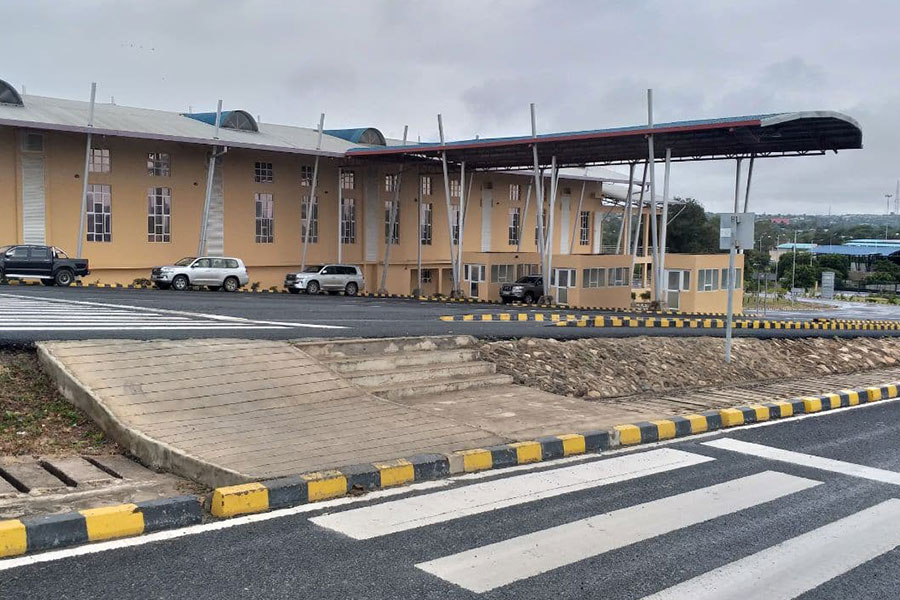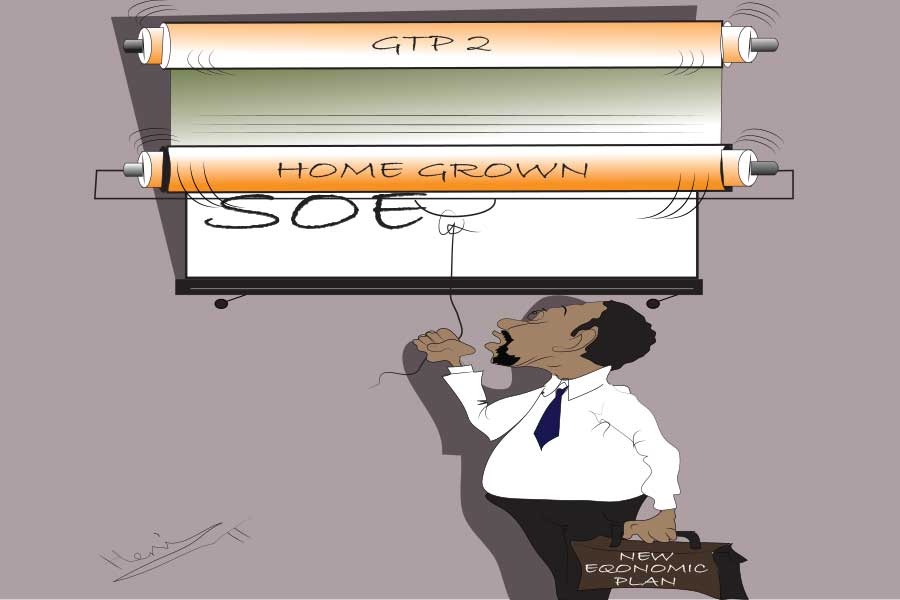
News Analysis | Jan 01,2022
Jun 29 , 2024
By Birhanu Beshah
In recent months, the Ministry of Innovation & Technology (MoIT) has embarked on a noteworthy path to nurture Ethiopia's digital ecosystem, organising two consecutive expos: Startups Ethiopia in April and STRIDE Expo 2024 the following month. These events have placed digital technology and startups at the centre of discussions, demonstrating the government’s ambition to make the digital sector a foundational pillar of the national economy, following agriculture, industry, and services.
The federal government has shown a robust inclination towards leveraging the digital sector as a driver of economic growth. A policy document, "Digital 2025", illustrates this vision, outlining the sector's direct and indirect contributions to the economy. Directly, the sector, including telecom companies, cloud service providers, and digital platforms, constitutes a considerable portion of the national economy. For instance, the historic licensing of Safaricom and the entry of cloud service providers like Raxion into the market show this shift.
Indirectly, the digital sector's development is expected to stimulate other sectors by reducing market transaction costs and enhancing efficiency. The policy targets agriculture, manufacturing, tourism, and finance as areas mature for transformation. The strategic approach has catalysed the growth of fintech companies, with "TeleBirr" emerging as a notable success story.
While the government's efforts to build a robust digital economy are commendable, there are concerns that, if not adequately addressed, these initiatives could exacerbate the country's vulnerabilities. One immediate risk area is the expansion of digital consumption. The digital infrastructure, equipment, and user gadgets required to support this growth are predominantly imported, which could further strain Ethiopia’s trade balance.
A closer look at the recent expos reveals a focus on the domestic market among startups and new businesses.
During the closing ceremony of the STRIDE Expo, various awards were distributed across categories such as "lifetime achievement, startups, and hackathons." Notably, the Lifetime Achievement award recognised participants like Ayana Birru (Eng.), who developed the Amharic typewriter in the 1930s, and Daniel (PhD), who created a computer keyboard for Geez alongside Daniel Mebratu, the founder and owner of Dan Lift Technology.
In the startup category, winners included Gari Logistics, a transport service matchmaking platform; Arfi Pay, a fintech company; and Guzo Technologies. The hackathon, a competition among young coders, demonstrated the innovative potential of the next generation, with award-winning teams developing apps for tourism and healthcare. However, these awardees predominantly target the domestic market, raising concerns about their long-term viability in the face of global competition.
For instance, tourism and logistics platforms developed locally might struggle to compete with well-established global counterparts. Proponents of focus on the domestic market often cite import substitution as a key benefit, suggesting that reducing the need for foreign currency can help address the trade deficit. They argue that "a dollar saved is more than a dollar gained," implying that import substitution can lead to capacity accumulation, and, eventually, boost export revenues.
However, scepticism abounds. As a new economic pillar, the digital sector will likely introduce new import demands, potentially exacerbating the trade deficit rather than alleviating it. There should be a holistic view of the digital sector’s growth to encourage advancements and avoid a perpetuating cycle of trade imbalance.
The notion of capacity accumulation through a domestic market focus should raise questions about the ability to learn and compete in the global market. The experiences and challenges faced in domestic and export markets differ significantly. Ethiopia must embrace an export-oriented approach to optimise the digital sector's contribution to export gains. While valuable for initial growth, the domestic market-driven strategy needs to evolve to compete internationally to ensure sustainable benefits.
PUBLISHED ON
Jun 29,2024 [ VOL
25 , NO
1261]


News Analysis | Jan 01,2022

Editorial | Jul 13,2024

My Opinion | Dec 15,2024

Featured | Sep 10,2021

Radar | May 11,2019

My Opinion | Feb 27,2021

Radar | Jan 21,2023

Editorial | Sep 14,2019

Radar | Jun 29,2025

Commentaries | Sep 02,2023

My Opinion | 131770 Views | Aug 14,2021

My Opinion | 128153 Views | Aug 21,2021

My Opinion | 126099 Views | Sep 10,2021

My Opinion | 123721 Views | Aug 07,2021

Dec 22 , 2024 . By TIZITA SHEWAFERAW
Charged with transforming colossal state-owned enterprises into modern and competitiv...

Aug 18 , 2024 . By AKSAH ITALO
Although predictable Yonas Zerihun's job in the ride-hailing service is not immune to...

Jul 28 , 2024 . By TIZITA SHEWAFERAW
Unhabitual, perhaps too many, Samuel Gebreyohannes, 38, used to occasionally enjoy a couple of beers at breakfast. However, he recently swit...

Jul 13 , 2024 . By AKSAH ITALO
Investors who rely on tractors, trucks, and field vehicles for commuting, transporting commodities, and f...

Jul 5 , 2025
Six years ago, Ethiopia was the darling of international liberal commentators. A year...

Jun 28 , 2025
Meseret Damtie, the assertive auditor general, has never been shy about naming names...

Jun 21 , 2025
A well-worn adage says, “Budget is not destiny, but it is direction.” Examining t...

Jun 14 , 2025
Yet again, the Horn of Africa is bracing for trouble. A region already frayed by wars...

Jul 6 , 2025 . By BEZAWIT HULUAGER
The federal legislature gave Prime Minister Abiy Ahmed (PhD) what he wanted: a 1.9 tr...

Jul 6 , 2025 . By YITBAREK GETACHEW
In a city rising skyward at breakneck speed, a reckoning has arrived. Authorities in...

Jul 6 , 2025 . By NAHOM AYELE
A landmark directive from the Ministry of Finance signals a paradigm shift in the cou...

Jul 6 , 2025 . By NAHOM AYELE
Awash Bank has announced plans to establish a dedicated investment banking subsidiary...